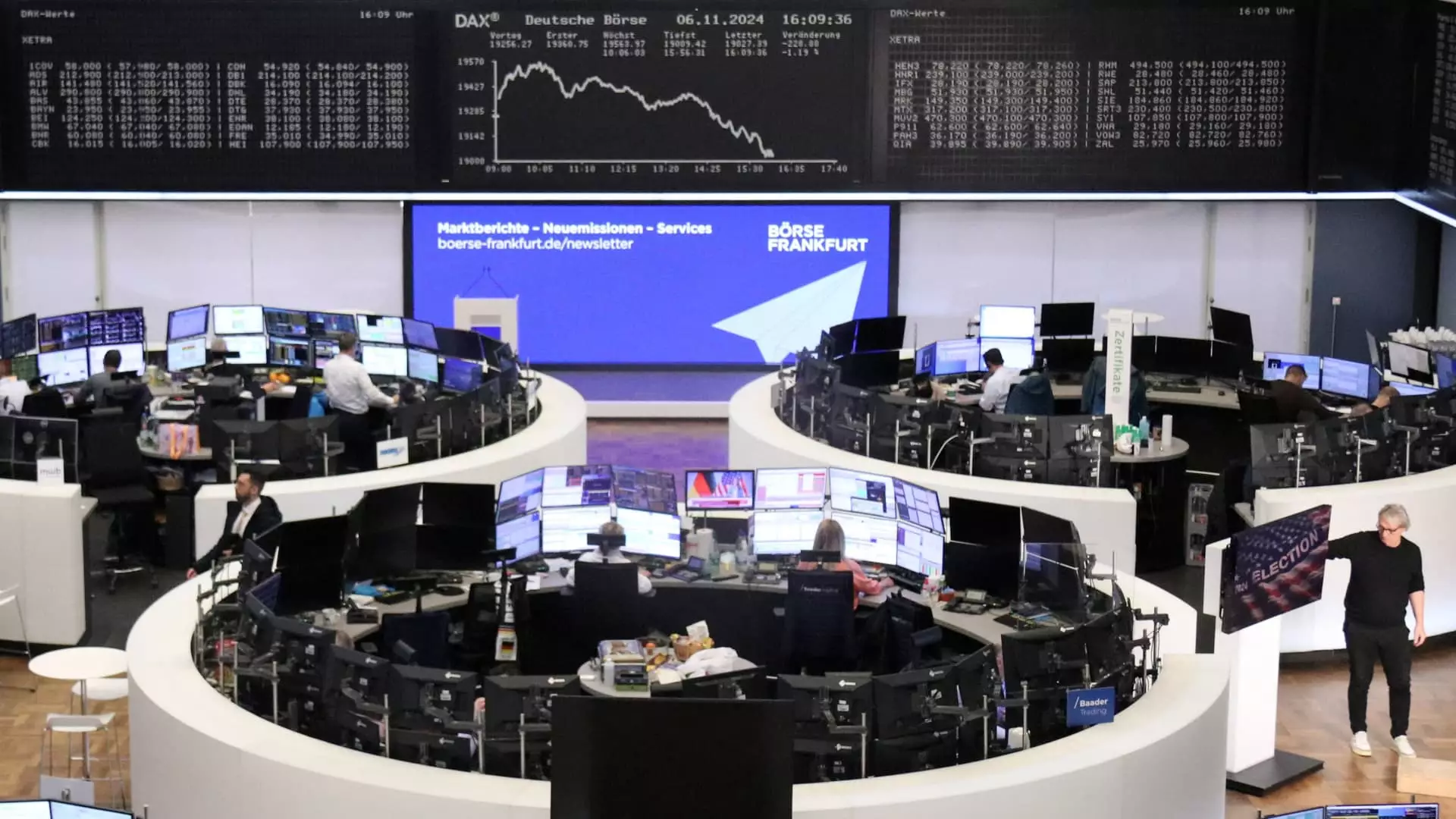European stock markets opened on a surprisingly positive note Wednesday, despite the backdrop of escalating tensions from U.S. tariffs. Investors are feeling a flicker of optimism that U.S. President Donald Trump’s proposed 25% duties on Canadian and Mexican goods may soon be rolled back. The Stoxx 600 index, a barometer of European market performance, surged by 1.05% shortly after the trading session commenced. This comeback signals a potential shift in sentiment among investors, who are weary after the global downturn witnessed just a day earlier due to fears surrounding tariff impositions.
The rebound in the Stoxx autos index—rising by 2.4% after a staggering 6% drop the previous day—underscores the volatility of market reaction to political developments. While optimism thrives in some sectors, others languish in the red, notably utilities and food and beverage companies. This divergence illustrates the fragility of investor confidence and raises questions about the sustainability of such rebounds amidst ongoing political uncertainties.
Germany’s Debt Brake: A Crucial Political Gamble
The political landscape in Germany is integral to understanding the current market dynamics. Following a closely contested election last month, coalitions are now forming, and the conservative alliance alongside the Social Democratic Party is signaling a desire to reform Germany’s contentious debt brake system. This move, inherently political, aims to facilitate increased defense spending and bolster Germany’s sluggish economy. Friedrich Merz, a prominent figure likely to step into the chancellor’s role, has outlined plans for a substantial 500 billion euro credit-financed infrastructure fund over a decade.
However, this attempt at reform does not come without its challenges. Discussions around the debt brake have always been contentious, underscoring the clash between fiscal prudence and the need for substantial public investment. The push for greater expenditure, particularly in defense, could ignite fierce debates regarding fiscal responsibility—a recurring theme in European politics. A relaxation of the debt limits is necessary, yet the implications of this shift could trigger a backlash from fiscal conservatives, revealing the complexities within the German political discourse.
Bond Yields and Fiscal Policies: A Tightrope Walk
As news of potential policy changes filters through, the bond market is reacting in tandem. The yield on German 10-year bonds rose sharply, surpassing 21 basis points to reach 2.697%. This increase suggests that the market anticipates greater borrowing to support Merz’s ambitious plans. Economists, including Andrew Kenningham from Capital Economics, predict that Germany may run budget deficits exceeding 3% of GDP over the next two years—a significant departure from earlier estimations of 2.5%.
While such fiscal loosening may stimulate economic growth, it carries the risk of inflating bond yields further, resulting in increased costs for future borrowing. Investors, thus, find themselves perched on a tightrope, forced to reconcile the need for socio-economic investment against the realities of a potentially overheated borrowing environment.
Currency Wars and Global Trade Tensions
Fluctuations in European stock indices are further compounded by ongoing uncertainties in the global trade arena. The euro extended its rally against the U.S. dollar, rising another 0.47%, reflecting the current geopolitical climate’s complexities. Analysts express concerns that the introduction of U.S. tariffs on Canada, Mexico, and China could reignite inflation and further escalate trade disputes, impacting global markets. With Wall Street reeling from two days of declines following the implementation of these tariffs, the atmosphere remains tense.
The retaliatory measures taken by these countries exacerbate an already volatile situation. As tariffs become a principal instrument of international relations, the resultant currency fluctuations and market unpredictability could impose broader implications for trade-dependent economies, which includes much of Europe. The challenge lies in navigating these treacherous waters while safeguarding domestic economic interests.
In this unpredictable environment, European markets are finding a positive moment amid widespread uncertainty. The situation mirrors the broader challenges facing not just Europe, but the global economy, as political decisions have far-reaching ramifications on market stability. As reform debates heat up and trade tensions continue to evolve, investors, policymakers, and market analysts brace themselves for what lies ahead—an intricate dance of opportunity and risk on an ever-shifting economic stage.


Leave a Reply